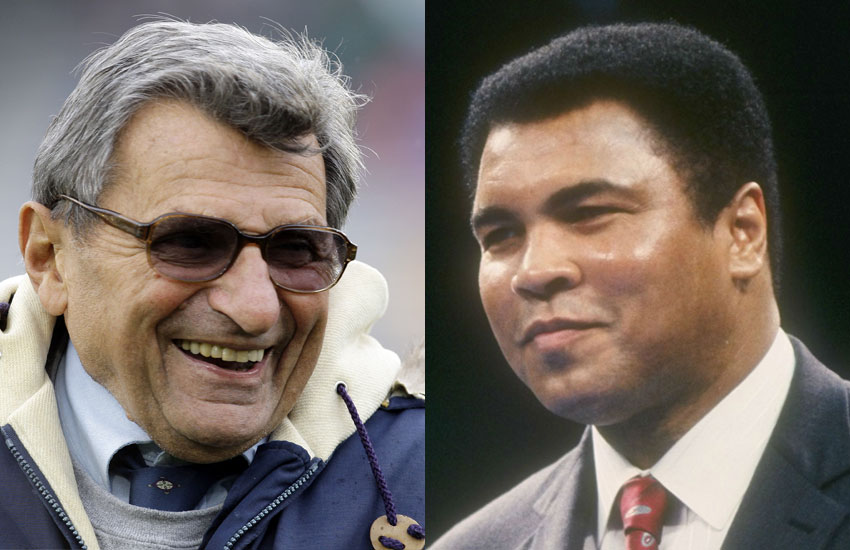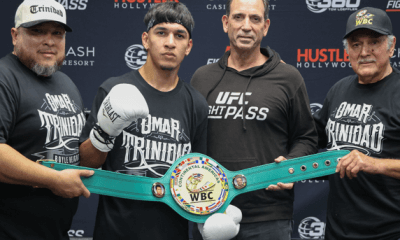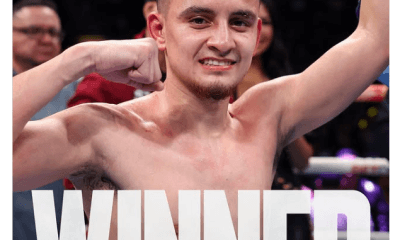Canada and USA
Notes and Nuggets from Thomas Hauser
I recently watched Paterno, the HBO film about former Penn State football coach Joe Paterno.
Paterno was one of college football’s greatest coaches. But his image was forever tarnished by an inadequate response to allegations

I recently watched Paterno, the HBO film about former Penn State football coach Joe Paterno.
Paterno was one of college football’s greatest coaches. But his image was forever tarnished by an inadequate response to allegations, later proved true, that longtime assistant coach Jerry Sandusky was sexually abusing underage boys. Paterno’s failure was particularly disappointing given the fact that he was an intelligent man who wasn’t afraid to venture outside the parameters that often restrict the thinking of bigtime college football coaches.
When I was researching Muhammad Ali: His Life and Times, I interviewed a number of iconic sports figures. Paterno was one of them.
We began by talking about football.
“Ali would have made a great linebacker and an outstanding tight end,” Paterno told me. “I don’t know if he had the foot speed for any of the other skill positions, but his strength, quickness of hands, and balance were awfully good. Now maybe football wouldn’t have been the right game for him. Certainly, at age eighteen or nineteen, he’d have needed guidance as to what he could and couldn’t do as far as alienating his teammates was concerned. I’m liberal politically, but I’m conservative in terms of lifestyle and how I coach the team. And here at Penn State, we have a rule about players getting along with each other. You can only say you’re sorry so many times. But I don’t want to underestimate Ali’s ability to accommodate any situation. If he’d made a commitment to it, I’m sure he would have been a team player. I know, I’d have loved the chance to coach him.”
Then the conversation turned to weightier matters.
“Ali was important,” Paterno noted. “I think every black person who’s able to overcome the problems that surround them as he did and serve as a role model is important. Kids today are in desperate need of role models who not only succeed in the sports world, but once they’ve done that, have the ability of a Jackie Robinson or a Muhammad Ali to change the social attitudes of black and white Americans, and make blacks understand that they don’t necessarily have to do what whites want them to do to be respected. And Ali achieved that. I always admired him as an athlete. But I think the stand he took on the draft was what spoke most about him. That he had the courage to jeopardize his career and accept all the implications of his position showed a man of great principle.”
“The world was different then,” Paterno continued. “It’s hard for some people now to remember the – ‛despair’ might be too strong a word, but the fear in young people over what was going on. I had a friend, a bright young man I admired greatly who’d covered our team for the student newspaper here at Penn State. Then he’d become editor of the paper and gone into the service after college. One day, he came back to visit and had a long talk with me about deserting. He wanted to know how I’d react. And I said, ‘Well, as far as our personal relationship is concerned, it would have no effect on me.’ And he did desert. He went up to Canada and wrote me every once in a while. And when he did that, and when Ali took his stand, it made me wonder, ‛What the devil is going on?’ I started thinking about what was happening in Vietnam. Now, if I’d been drafted, I probably would have gone because of my traditions, but that doesn’t mean I’d have been right to go. And the truth is, I started to become very sympathetic to people like Ali and that young man. I began to understand that they had very good reasons for what they were doing. I began to see Vietnam as a white man’s war in the sense that it was being fought by blacks, but in support of a white colonial mentality. I began to think that the war was very wrong.”
Not your typical bigtime college football coach.
* * *
Last July, Conor McGregor and Floyd Mayweather headlined a press conference at Barclays Center as part of a worldwide promotional tour for their August 26, 2017, fight. McGregor began the press conference by calling Mayweather a “f****** little squirt” and said Floyd could “suck this d***.” Then he turned to racial matters.
“Let’s address the race [issue],” McGregor told the crowd. A lot of the media seem to be saying I’m against black people. That’s absolutely f****** ridiculous. Do they not know I’m half-black? Yeah. I’m half-black, from the belly button down. And just to show that that’s squashed, here’s a little present for my beautiful, black female fans.”
McGregor then began thrusting his pelvis back and forth with his microphone strategically placed to simulate sexual intercourse.
On April 5, 2018, McGregor returned to Barclays Center, this time as an uninvited visitor in conjunction with the final pre-fight press conference for UFC 223. As the world now knows, Conor threw a metal dolly through a bus window, injuring several UFC fighters who were on the bus. That led to the filing of criminal charges against him including three counts of assault and one count of criminal mischief.
Two nights later during a Showtime boxing telecast, Jim Gray asked Mayweather about the bus incident. Floyd responded, “I feel that, when you have reached such high status, you have to carry yourself in a classy way. I know that, when we fought, we both sold the fight, the world loved what we did. But outside the ring, you have to carry yourself like a gentleman.”
Mayweather’s comment demands a response.
First, it’s not just highly visible celebrities (I assume that’s what Floyd means by “high status”) who should carry themselves in “a classy way.” And more important, the was nothing “classy” about the Mayweather-McGregor promotion. It was a blatantly misogynist, racist, homophobic endeavor. But it was “good marketing” so the powers that be let it pass without worrying about the people they were empowering and the forces they were unleashing.
* * *
In addition to traveling the world over as a ring announcer, Michael Buffer often makes personal appearances on behalf of corporate clients. Recently, Buffer delighted an audience in Germany with the observation, “If you speak three or four languages like the Klitschkos, you’re multilingual. If you speak two languages, you’re bilingual. And if you speak one language, you’re American.”
Thomas Hauser can be reached by email at thauser@rcn.com. His most recent book – There Will Always Be Boxing – was published by the University of Arkansas Press. In 2004, the Boxing Writers Association of America honored Hauser with the Nat Fleischer Award for career excellence in boxing journalism.
Check out more boxing news on video at The Boxing Channel
-

 Featured Articles3 weeks ago
Featured Articles3 weeks agoThe Hauser Report: Zayas-Garcia, Pacquiao, Usyk, and the NYSAC
-

 Featured Articles2 weeks ago
Featured Articles2 weeks agoOscar Duarte and Regis Prograis Prevail on an Action-Packed Fight Card in Chicago
-

 Featured Articles1 week ago
Featured Articles1 week agoThe Hauser Report: Cinematic and Literary Notes
-

 Book Review4 days ago
Book Review4 days agoMark Kriegel’s New Book About Mike Tyson is a Must-Read
-

 Featured Articles4 weeks ago
Featured Articles4 weeks agoManny Pacquiao and Mario Barrios Fight to a Draw; Fundora stops Tim Tszyu
-

 Featured Articles4 weeks ago
Featured Articles4 weeks agoArne’s Almanac: Pacquiao-Barrios Redux
-

 Featured Articles3 weeks ago
Featured Articles3 weeks agoRemembering Dwight Muhammad Qawi (1953-2025) and his Triumphant Return to Prison
-

 Featured Articles4 weeks ago
Featured Articles4 weeks agoOleksandr Usyk Continues to Amaze; KOs Daniel Dubois in 5 One-Sided Rounds


















